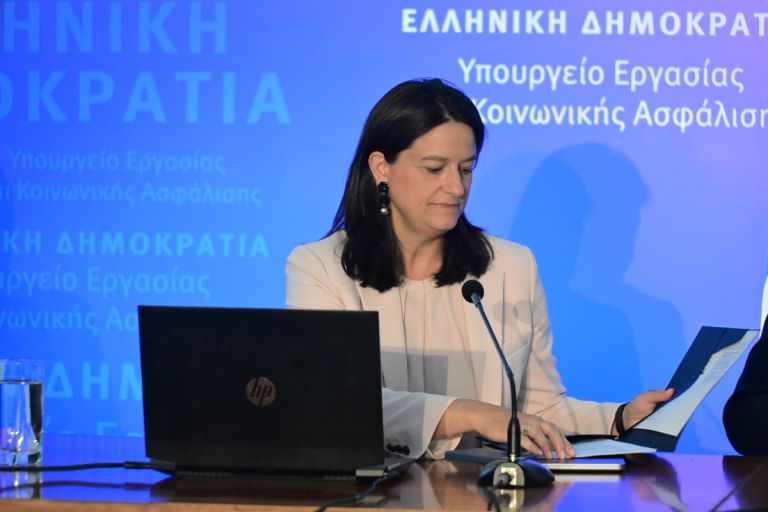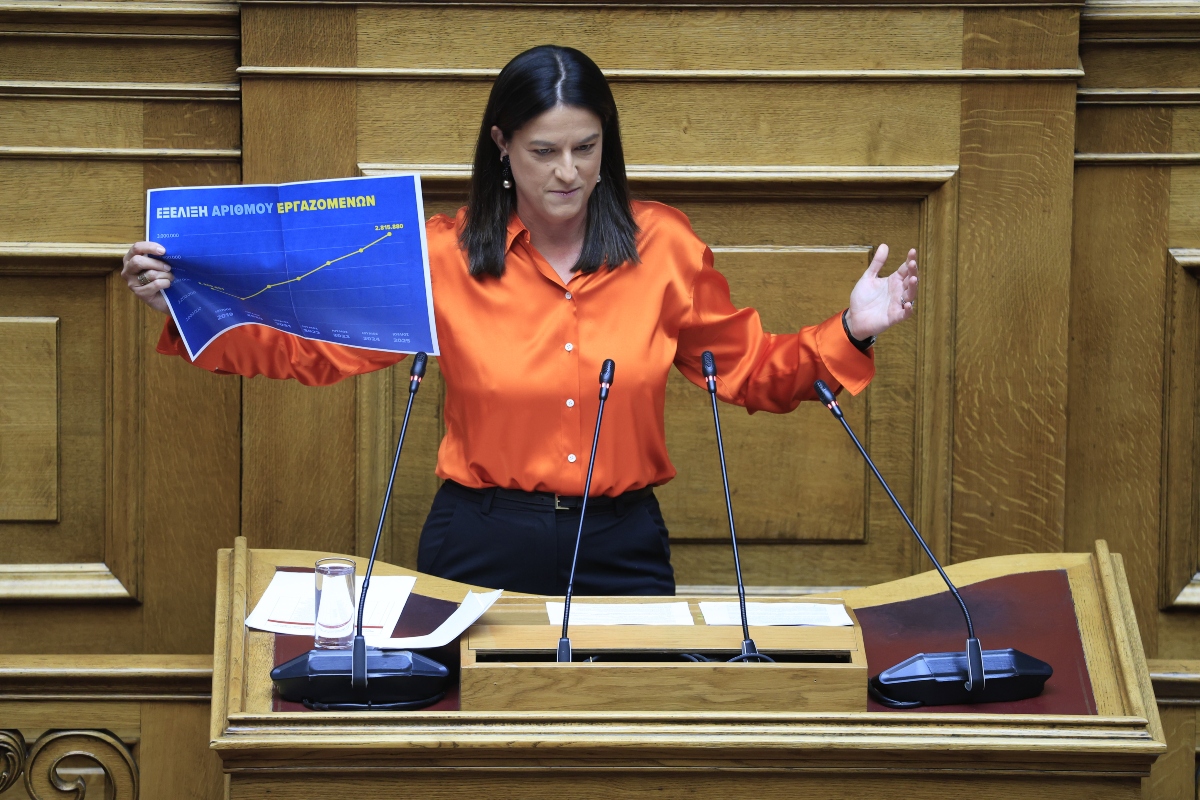Niki Kerameos: “It’s Not a 13-Hour Nightmare, It’s a Choice” – Political Storm in Parliament

Πηγή Φωτογραφίας: eurokinissi//Niki Kerameos: “It’s Not a 13-Hour Nightmare, It’s a Choice” – Political Storm in Parliament
The Parliament approved the new Labor Bill by majority, following a heated session marked by intense political confrontations. SYRIZA abruptly exited the roll-call vote requested by New Democracy, condemning the legislation as a “dismantling of labor rights,” focusing especially on the controversial provision regarding 13-hour workdays.
The session was interrupted Wednesday night due to the fainting of Greek Solution MP Maria Athanasiou and resumed Thursday morning, when the voting concluded.

kerameos (1)
Five “Truths” According to the Ministry of Labor
From the parliamentary podium, Minister of Labor and Social Security, Niki Kerameos, defended the bill, countering accusations of “labor deregulation” and “employer dictatorship.”
“This bill does not bring 13-hour horrors or monstrosities, as the opposition claims. It offers workers more choices,” she emphasized.
- The so-called “13-hour” provision is an exception, limited to certain days per year, and only with the explicit consent of the employee. The Minister pointed out that multiple employment already exists today across two employers — the bill simply allows this up to 13 hours to be done with one employer, with a 40% pay increase.
- Strengthening workers’ rights, including extended maternity leave and protection of income through the Digital Work Card.
- Facilitating businesses, with reduced bureaucracy and faster hiring processes.
- Incorporation of proposals from social partners, with over 60 suggestions integrated into the final text.
- Responding to the new labor market dynamics, aiming for more and better-paid jobs, referencing the drop in unemployment and the rise of the minimum wage.
The 9 Key Changes Introduced
The Ministry highlighted the main reforms:
- Possibility of four-day workweeks, with 40 hours and full pay.
- Flexibility in leave allocation, allowing workers to split annual leave into multiple periods.
- Expanded maternity leave rights to foster mothers, with continuity of benefits regardless of employer change.
- Increased protection for workers, including untouchable and non-seizable parental leave benefits and prohibition of wage cuts due to Digital Work Card implementation.
- Simplified hiring, reducing required paperwork from four forms to one.
- Less bureaucracy, eliminating redundant documents.
- Digital tools for businesses and workers, including new apps for workforce management.
- Health and safety standards, with mandatory first-aid training and stricter controls.
- Correction of distortions for working pensioners, improving their net income by exempting certain solidarity contributions.
Political Clash and Harsh Words
The tension in Parliament was palpable. SYRIZA’s walkout was justified by claims that the bill institutionalizes “exhausting hours” and “dismantles decades of labor rights.”
Minister Kerameos fired back sharply:
“If the ‘13-hour’ provision did not exist, you would have nothing to criticize. You refused to vote for provisions that strengthen workers.”
PASOK MP Pavlos Geroulanos called it a “step backward” in labor rights, while the government pointed to existing collective agreements—some outside tourism—that include sixth-day work.
A Bill with Deep Political Impact
This labor reform is not just a technical update but a clear political statement. The government bets on flexibility and employment growth, while the opposition warns of labor destruction.
The debate over the “13-hour” workday will remain central in the coming months, touching on the very social contract of labor and directly affecting hundreds of thousands of workers’ daily lives.
The new labor framework attempts to balance “flexibility” with “protection.” Whether this model succeeds will be seen in practice.
Source: pagenews.gr
Διαβάστε όλες τις τελευταίες Ειδήσεις από την Ελλάδα και τον Κόσμο






Το σχόλιο σας